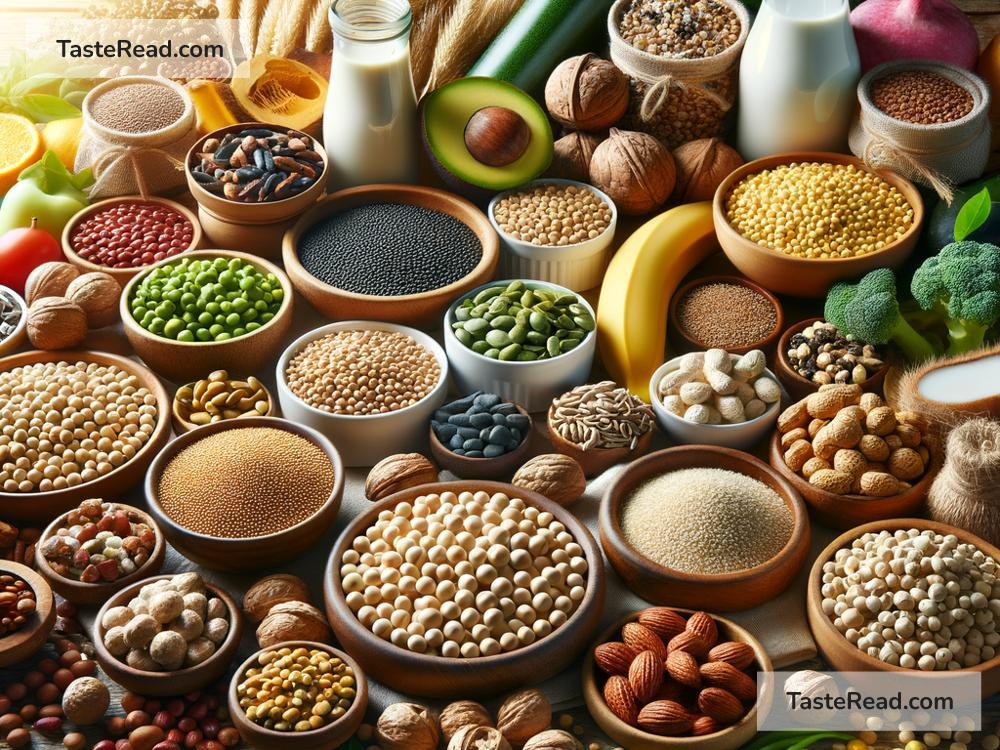Veganism and Hormonal Balance: What You Need to Know
In recent years, veganism has soared in popularity. People adopt this plant-based diet for various reasons, including animal welfare, environmental concerns, and overall health benefits. But when switching to a diet devoid of animal products, many wonder about its impact on hormonal balance. It’s a valid concern, as hormones govern numerous processes in our bodies, from growth and metabolism to mood regulation. So, let’s dive into what you need to know about veganism and hormonal balance.
Understanding Hormones
Hormones are chemical messengers produced by the endocrine system. They travel through the bloodstream to tissues and organs, working slowly over time to affect many different processes, including growth and development, metabolism, sexual function, reproduction, and mood.
The Impact of Diet on Hormones
What we eat impacts our hormonal health significantly. Nutrients from our diet are the raw materials used in the production and regulation of hormones. Therefore, the quality and type of food we consume play a critical role. For instance, diets high in processed foods and sugars can lead to insulin resistance, a condition where the body doesn’t respond well to insulin. This can spike blood sugar levels, affecting hormonal balance and leading to various health issues.
Veganism and Hormonal Health
Switching to a vegan diet can indeed impact your hormonal balance, but with proper management, it can be mostly positive.
1. Phytoestrogens: Plants contain compounds called phytoestrogens, which can mimic estrogen in the body. Foods like soy are rich in phytoestrogens and can influence hormonal activity. For some, especially those dealing with estrogen dominance, this can be beneficial. However, it’s crucial to consume these in moderation.
2. Fiber: Vegan diets are typically high in fiber, which aids in digestion and the excretion of excess hormones, particularly estrogens, thus preventing their reabsorption.
3. Healthy Fats: Hormones thrive on healthy fats, and vegan diets can provide plenty through nuts, seeds, and avocados. These fats are crucial for producing and maintaining balanced hormone levels.
4. Vitamins and Minerals: Plant-based diets are rich in various vitamins and minerals essential for hormonal health, such as Vitamin B, Vitamin E, magnesium, and zinc. These nutrients play vital roles in hormone production and regulation.
5. Lowered Insulin Levels: Vegan diets tend to be low in saturated fats and high in fiber, which can help maintain steady blood sugar levels and reduce insulin spikes.
Considerations for Vegans
While a vegan diet has many benefits for hormonal balance, there are a few nutrients critical for hormonal health that vegans might find challenging to obtain solely from plant sources:
1. Vitamin B12: Crucial for nerve function and energy production, B12 is naturally found in significant amounts only in animal products. Vegans should consider fortified foods or supplements.
2. Omega-3 Fatty Acids: Essential for brain health and reducing inflammation, Omega-3s are primarily found in fish. Flaxseeds, chia seeds, walnuts, and algae-based supplements are good vegan options.
3. Iron: Necessary for blood production and oxygen transport, iron from plant sources is less easily absorbed than that from animal products. Eating vitamin C-rich foods alongside iron-rich plant foods can enhance absorption.
4. Iodine: Important for thyroid function, iodine is mostly found in dairy and seafood. Seaweed and iodized salt are good sources for vegans.
Advice for Vegans
To ensure your vegan diet supports optimal hormonal health:
- Diversify Your Plate: Ensure you’re getting a wide range of fruits, vegetables, whole grains, nuts, and seeds to cover all your nutritional bases.
- Monitor Your Nutrient Intake: Pay special attention to the nutrients that are less abundant in a vegan diet and consider supplements if necessary.
- Balance Your Phytoestrogens: Include moderate amounts of phytoestrogen-rich foods like soy in your diet but don’t overdo it.
- Stay Informed: Keep learning about nutritional science and potentially adjust your diet as more information becomes available.
In conclusion, a well-planned vegan diet can be beneficial for your hormonal health, but it requires mindfulness and sometimes supplementation to meet all your nutritional needs. Always consider consulting with a healthcare provider or a dietitian, especially when making significant dietary changes. With the right approach, veganism can be a pathway not only to a healthier planet but also to a hormonally balanced body.


